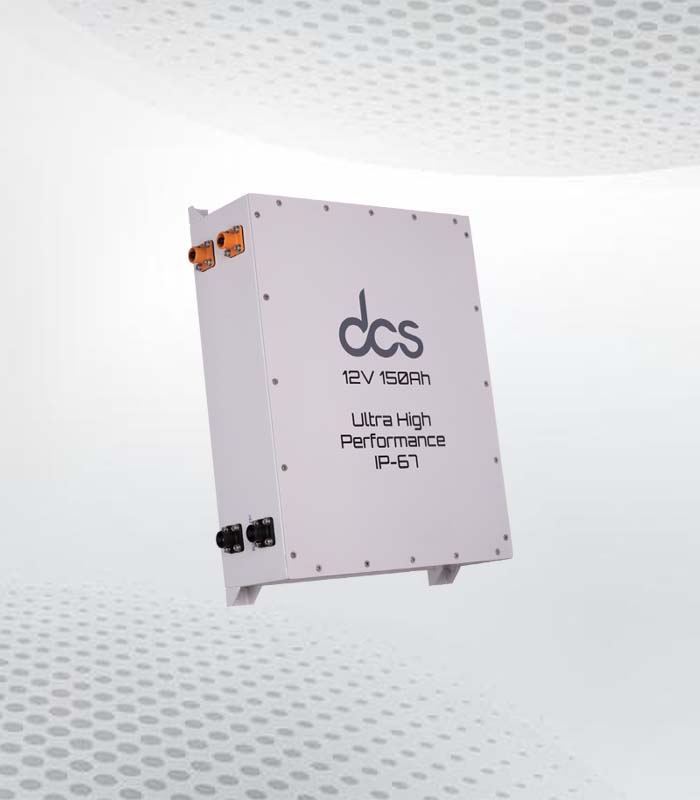When powering your adventures, a 12V deep cycle battery is an unsung hero. Whether taking your RV on the road, sailing into uncharted waters, or harnessing renewable energy for your home, these robust batteries provide reliable power when needed. But with great power comes great responsibility—understanding how to handle, store, and dispose of these batteries safely can maximize their lifespan and ensure safety. Dive into this guide to discover essential tips that will keep you and your battery in top shape!
Understanding the 12V Deep-Cycle Battery: An Essential Guide
A 12V deep-cycle battery is designed to provide steady power over an extended period. Unlike standard car batteries, which deliver quick bursts of energy for short durations, these batteries can be discharged and recharged repeatedly without significant damage. They are commonly used in various applications, such as RVs, boats, and renewable energy systems. This versatility makes them essential for off-grid living or backup power solutions.
Deep-cycle batteries come in different chemistries, including lead-acid and lithium-ion. Each type has its advantages regarding longevity, weight, and cost-efficiency. Understanding the specific needs of your application will help you choose the right battery type. Proper handling ensures safety while maximizing performance and lifespan.
Best Practices for Storing Your 12 V Deep Cycle Battery
When storing your 12 V deep cycle battery, the environment plays a crucial role. Choose a cool, dry place that is well-ventilated. Avoid areas that experience extreme temperatures or humidity; both can diminish battery life. It’s essential to keep the terminals clean and free from corrosion. A mixture of baking soda and water works wonders for cleaning any buildup on terminals. After cleaning, ensure they are completely dry before reconnecting or storing the battery. If you’re not using the battery for an extended period, consider disconnecting it from any devices.
This helps prevent slow discharges, which could lead to irreversible damage over time. Regular maintenance checks are vital as well. Inspect your battery’s state of charge every few months and look for signs of wear or damage. Keeping track ensures you catch potential issues early. For added safety during storage, use appropriate protective gear if handling larger batteries—gloves and goggles can help protect against accidental spills or leaks. Following these best practices when storing your 12V deep-cycle battery will prolong its lifespan and enhance its performance whenever you need it next.
The Role of a 12 Volt Deep Cycle Battery in Renewable Energy Systems
The versatility of a 12 Volt deep cycle battery makes it a key player in renewable energy systems. These batteries are designed to deliver sustained power over long periods, which is crucial for applications such as solar and wind energy setups. In solar power systems, the battery stores energy generated during sunny days for use at night or on cloudy days. This ensures you can access electricity when needed, making your home or business more self-sufficient.
These batteries also serve an essential function in wind energy applications. They capture the inconsistent bursts of power produced by wind turbines and provide a steady energy supply for household needs or grid support.
Beyond storage, 12V deep-cycle batteries can be connected in series or parallel configurations to increase voltage and capacity. This flexibility allows users to customize their renewable energy systems according to specific requirements. Understanding how these batteries work will be vital for maximizing efficiency and longevity in our green initiatives as we continue embracing sustainable practices. Proper handling, storage, and disposal remain fundamental to safely integrating this technology into your life while promoting environmental stewardship.
Benefits of Using a 12 Volt Deep-Cycle Battery for Your Energy Needs
A 12-volt deep-cycle battery offers versatile energy solutions. It is designed to provide consistent power over extended periods, making it ideal for various applications. Here are some benefits of using a 12 Volt deep-cycle battery for your energy needs:
Long Lifespan
One of the main advantages of a 12 Volt deep-cycle battery is its long lifespan. These batteries are designed to withstand frequent and deep discharges, allowing them to last longer than regular car batteries. With proper maintenance, a deep-cycle battery can last up to 8 years.
Reliable Power Supply
Deep-cycle batteries are specifically designed for off-grid and backup power applications. They provide reliable and consistent power over an extended period, making them ideal for use in RVs, boats, and other remote locations where access to electricity may be limited.
Versatility
A 12 Volt deep-cycle battery can be used in various applications, including renewable energy systems, marine vehicles, golf carts, and more. This versatility makes it a popular choice among consumers, as it can fulfill various power needs.
Deep Discharge Capabilities
Unlike car batteries designed for short bursts of high power output, deep-cycle batteries deliver sustained power over an extended period. This means they can handle repeated discharge cycles without affecting their performance or lifespan.
Low Maintenance
Deep-cycle batteries require minimal maintenance compared to other types of batteries. Unlike traditional lead-acid batteries, they do not need to be topped up with distilled water. However, it is essential to regularly check the battery’s charge level and recharge it when necessary.
Exploring the Lifespan of a 12 Deep Cycle Battery: What to Expect
Understanding the lifespan of a 12 deep cycle battery is crucial when investing in one. These batteries are designed for longevity and can last anywhere from three to fifteen years, depending on usage and maintenance. Factors such as discharge depth play a significant role in determining how long your battery will serve you. Regularly discharging it below 50% can dramatically reduce its life. Keeping it at optimal charge levels ensures better performance over time.
Temperature also impacts the lifespan of your battery. Extreme heat can lead to quicker deterioration, while colder temperatures may affect capacity temporarily. Storing your battery in a controlled environment helps extend its life. Routine maintenance cannot be overlooked either. Checking the fluid levels and cleaning terminals goes a long way toward ensuring reliable operation. By following best practices for handling, storage, and general care, you maximize the potential of your 12V deep-cycle battery. This commitment enhances performance and extends longevity, giving you dependable power when needed most.
How to Choose the Right 12-Deep-Cycle Battery for Your Application
Choosing the right 12V deep-cycle battery for your application involves key considerations. Start by assessing your energy needs. Consider how much power you’ll require and how long you’ll need it to run effectively. Next, examine the type of devices or systems you plan to use with the battery. Different technologies, such as solar panels or electric vehicles, may have specific requirements influencing your choice. It would help if you also looked into the battery’s amp-hour rating. This rating indicates how long a battery can provide power before recharging. Higher ratings are ideal if you use multiple appliances simultaneously over extended periods.
Additionally, consider the physical size and weight of the battery as well as its mounting options in your intended space. Compatibility is crucial here; ensure it fits seamlessly within your setup without any modifications. Don’t forget about maintenance needs, too! Some batteries require more upkeep than others. Opting for low-maintenance models could save time and effort down the line. Always check customer reviews and product warranties from reputable brands before purchasing to ensure reliability and quality performance over time. With these guidelines in mind, finding an appropriate 12V deep-cycle battery tailored to your unique energy demands becomes manageable!
Innovations in 12 Volt Deep-Cycle Battery Technology: What’s New?
Recent advancements in 12V deep-cycle battery technology are transforming how we harness energy. Lithium-ion batteries, for instance, are gaining popularity due to their lightweight nature and higher efficiency than traditional lead-acid options. These modern batteries offer faster charging times and longer lifespans. This means fewer replacements and reduced costs over time. Their ability to withstand deeper discharges makes them ideal for demanding applications.
Another exciting development is the integration of smart technology. Many new models feature built-in monitoring systems that track real-time battery health, charge levels, and performance metrics. Users can now manage their energy resources more effectively through smartphone apps. Moreover, manufacturers are exploring sustainable materials in production processes. This shift enhances environmental responsibility and increases safety standards across the board. With these innovations, the future of 12V deep-cycle batteries looks promising and dynamic.
The Advantages of a 12VDC Deep Cycle Battery in Off-Grid Systems
Regarding off-grid systems, the 12VDC deep cycle battery stands out as a powerhouse. Its ability to provide reliable energy in remote locations makes it essential for those seeking independence from traditional power sources. One of the key advantages is its capacity to handle deep discharges without significant damage. This means you can draw on stored energy during extended periods without sunlight or wind, making them perfect for solar and wind applications.
The versatility of these batteries also allows them to support various devices—from lighting and small appliances to larger equipment—all while maintaining efficiency. Moreover, maintenance requirements are minimal compared to other battery types. With regular checks and proper care, your 12VDC deep-cycle battery can last several years, delivering dependable performance throughout its lifespan. These batteries are designed with safety features that mitigate storage and usage risks.
They can withstand harsh conditions commonly found in off-grid settings, providing peace of mind and practical benefits. Choosing a 12VDC deep-cycle battery empowers users not only because of its robust nature but also because of its adaptability across different renewable energy setups. Whether powering a cabin or supporting outdoor activities like camping or boating, this type of battery proves invaluable in enhancing self-sufficiency while contributing positively to sustainable living practices.
Conclusion
Regarding 12V deep cycle battery, safety should always be a priority. Understanding how to handle, store, and dispose of these power sources can prevent accidents and prolong their lifespan. Regular maintenance checks help ensure optimal performance. Monitoring voltage levels and keeping terminals clean are simple yet effective practices. As technology advances, the efficiency and capabilities of 12V deep-cycle batteries continue to improve. Staying informed about new developments can help you make better choices for your energy needs. Whether powering an off-grid cabin or using renewable energy solutions, choosing the right battery is crucial. With thoughtful selection and care, these batteries can serve you well for years.
FAQs
When it comes to 12V deep-cycle batteries, understanding their nuances can greatly enhance your experience and safety. Here are some frequently asked questions that help clarify common concerns:
What is a 12 V deep cycle battery?
A 12 V deep cycle battery is designed to provide steady power over long periods while being regularly discharged and recharged. Unlike regular car batteries, they’re built for sustained energy release.
How do I safely store my 12V deep-cycle battery?
Store your battery in a cool, dry place away from direct sunlight. Make sure it’s secured to prevent tipping or rolling, which can damage it or cause leaks.
What is the lifespan of a typical 12V deep-cycle battery?
The lifespan varies based on usage and maintenance but generally ranges from three to five years with proper care. Factors like charging habits and environmental conditions play significant roles.
Can I use my 12V deep-cycle battery for renewable energy systems?
Absolutely! These batteries are ideal for solar energy setups as they efficiently store the electricity generated by solar panels for later use.
Are there any new technologies in the field of 12-volt deep-cycle batteries?
Yes, advancements include lithium-ion options that offer longer life spans, faster charging times, and lighter weights than traditional lead-acid models.
| Related Business Listings |
| Contact Directory |
| Local Business Profiles |




